#ilya oblomov
Explore tagged Tumblr posts
Text

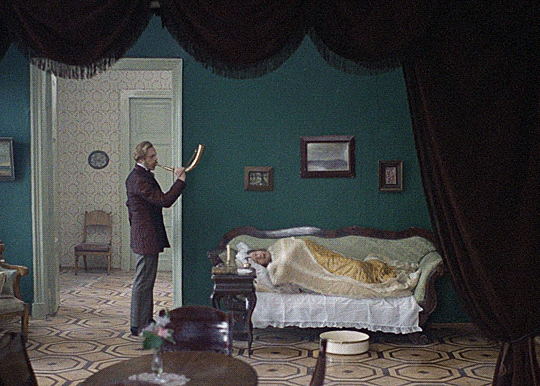
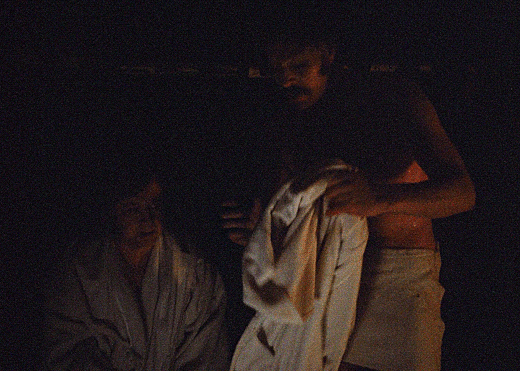



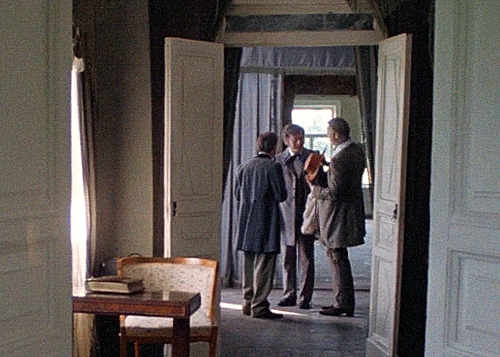

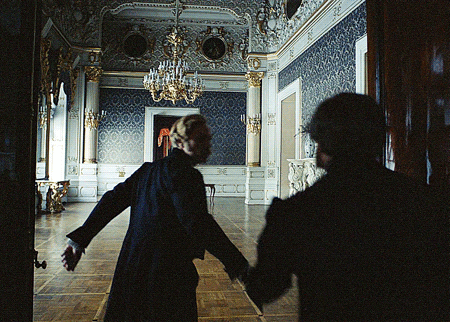

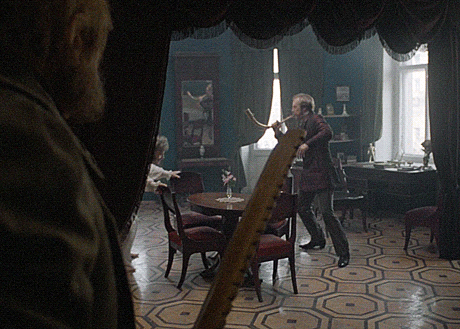

Ilya Oblomov [Oleg Tabakov] & Andrei Stoltz [Yuri Bogatyryov]
'...he sincerely loved and trusted only one person, perhaps because they had grown up, studied, and lived together. This person was Andrei Ivanovich Stoltz.' © ’Several days from the life of I. I. Oblomov’ (1980), dir. Nikita Mikhalkov
#soviet cinema#several days from the life of i i oblomov#sovietcinemaedit#filmedit#dailyflicks#cinemaspam#dailyworldcinema#dailykino#filmgifs#yuri bogatyryov#andrei stoltz#oleg tabakov#ilya oblomov#my gifs#несколько дней из жизни и и обломова#андрей штольц#илья обломов#юрий богатырёв#олег табаков
64 notes
·
View notes
Text
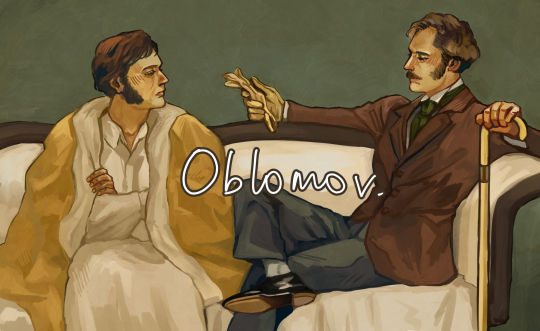
studi dari J. C. Leyendecker + sovkino: Oblomov (1980)
#Несколько Дней из Жизни И И Обломова#Several days from the life of I. I. Oblomov#Ilya oblomov#Andrey stolz#Coretangaguna#Soviet kino
36 notes
·
View notes
Text

10 notes
·
View notes
Text
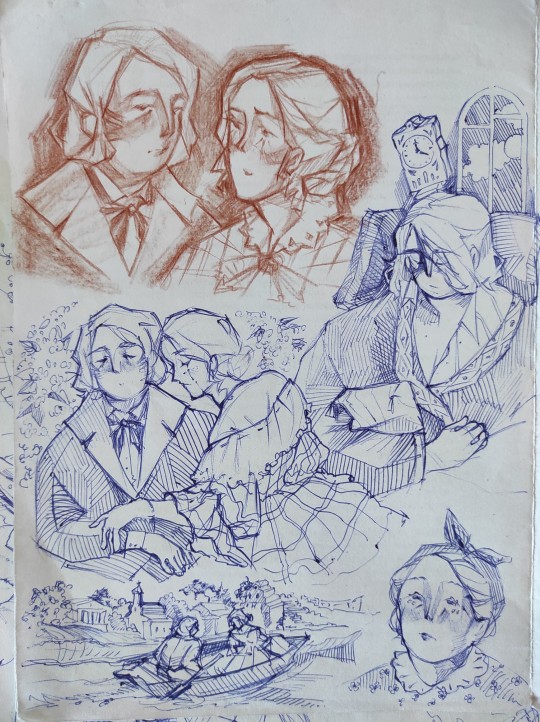
22 notes
·
View notes
Text

#Ilya Oblomov#oblomov#could infinity train have saved them poll#could infinity train have saved them
0 notes
Text
So , it's either something brilliant or something very stupid, but an ideas has came to me!
Do you know who Meljay reminds me of???
I hope you guys have read "Oblomov", but anyway, we have Olga from Oblomov. She loved both Ilya and Andrey, but couldn't be happy with either of them in the end because they lacked opposite traits.
That is, Andrey was a responsible, active person of progress and work, who lacked the warmth of his soul and sincerity, while Oblomov was a sincere and warm person who lacked responsibility, activity, and commitment to work and do something. And that's why Olga was missing something in both relationships.
Mel is actually very similar to Olga. She is smart, educated, creative, understands people perfectly, has mommy issues, wants progress and loves activity. And do you know who was perfect for her and who she felt fantastic with?
Jayce is a responsible, active person, striving for progress and work, and AT THE SAME TIME incredibly sincere and warm, capable of giving love.
Anyway, Meljay's a perfect match, you got it, right???
#I love classic literature and Oblomov is an amazing work you all should really read it if you still haven't!#meljay#arcane#jayce talis#mel medarda#arcane thoughts#mel x Jayce#oblomov#russian literature#classical literature
18 notes
·
View notes
Text
Oh, it's Ivan Goncharov, he is a Russian novelist and he is an icon. The guy was extremely passionate about being a writer from the young age, but published only three novels and one travelog because he was working a regular office job (well except this one time when he was a part of diplomatic mission to Japan where he spent months arranging meeting between Japanese nobility and Russian diplomatic mission while trying to pull non-existent protocol of Russian-Japanese meetings out of his ass) and never made writing his career. He wasn't an unknown writer, his novels made a lot of fuss in the literary circles of his times. Critical holywar around his novel Oblomov is so iconic that it is still studied by philology students. He just sucked at writing fast and by publisher's demand.
Goncharov's grandgrandfather was a soldier and made a decent military career. He had a chance to become a part of Russian nobility, but refused to receive this title because children of nobility were obliged to serve in the army as officers. So he became a merchant in Russian city of Simbirsk instead. Their family was pretty wealthy so Ivan Goncharov got a good education in Saint Petersburg. He worked in chancellery of Simbirsk governor, then as a translator at the Finance Ministry's Foreign commerce department.
The most popular of his novels is Oblomov, known for its controversial main character. It's about Ilya Oblomov, a lazy man from the landed gentry, who does nothing all day long, lives without any goal in his life and feels very nostalgic about his carefree childhood in the countryside. He isn't shitty person and seems like a really nice guy, but in the same time he lacks any ambitions, goals and passions, because he was raised very spoiled and always had all his needs satisfied by his parents or servants. He practically destroys his life by his inability to act independently. Initially Goncharov planned this novel to be a very harsh criticism of this type of people who can afford to live without any plans and goals, doing literally nothing, because they were raised surrounded by servants in (relative) wealth they inherited from their ancestors. Goncharov planned Oblomov as a very unlikable character but while he was writing his novel he got his annual leave and spent it in his hometown Simbirsk. After months of office job he finally was able to do literally nothing, just sleep, eat, read books and visit his friends. After it he hasn't been able to write Oblomov as an unlikable asshole, because yes, this guy is spoiled and absolutely useless, but laying in a bed all day without worrying about your work is actually SO DOPE.


Spotted this in a second hand bookshop and the whiplash I felt was so strong that I think I’ve discovered another 12 stages of grief
28K notes
·
View notes
Text
Do you ship...
1 note
·
View note
Photo

Ilya Oblomov Ivan Goncharov - Oblomov
#aesthetic#goncharov#ivan goncharov#oblomov#ilya oblomov#life#literature#classic literature#russia#russian literature
7 notes
·
View notes
Text


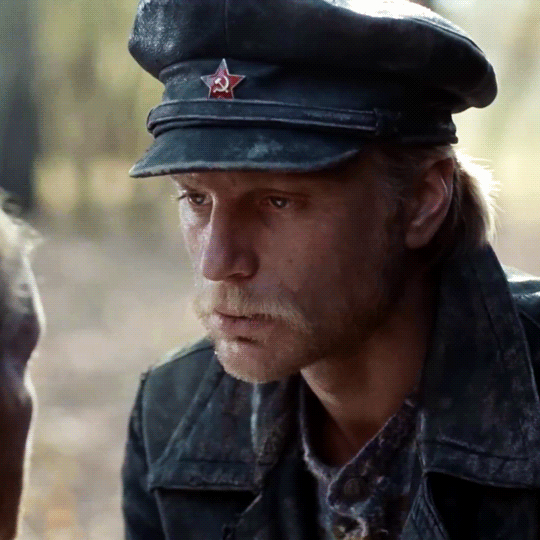


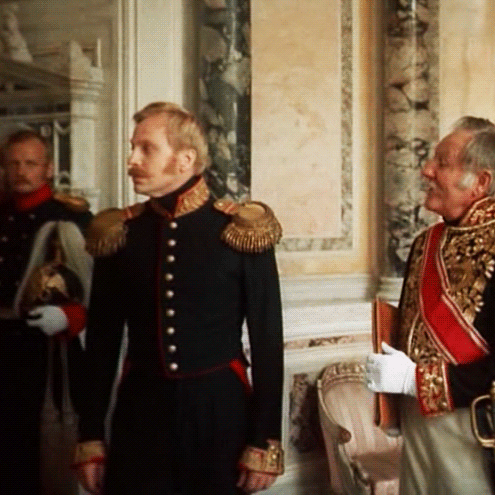

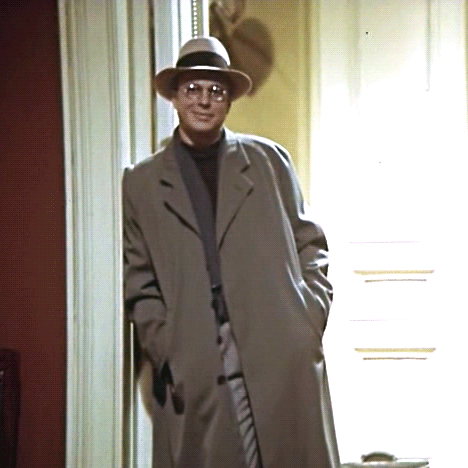
Yuri Bogatyryov (02.03.1947 — 02.02.1989)
Encyclopedia of the Soviet Cinema: 'There was no one like him, before or after. It looks like he'd come and gone so quick just to leave us this unfathomable enigma of his phenomenon to marvel at.' Vitaly Wolf (critic, writer): 'He was very nervous, very kind and extraordinarily open-hearted. His tutor Katin-Yartsev used to tell me how worried he was about Bogatyryov's openness and vulnerability.' Irina Pavlova (critic): 'A two-meter giant, he could easily play a bravest knight (or the chekist Yegor Shilov in At Home Among Strangers), then turn into an ecstatically maudlin idiot Manilov in Gogol's Dead Souls. One moment his body could be steel-and spring-like, and he'd sport unequalled strength and agility. The next it would turn all wadded and quilt-like, as if lacking spinal cord... Immensely gifted, he was a wealth of the artistic 'material' in its pure form: fantastically pliable, filling any shape or form, easily meeting any director-poised challenges, dramatic or intellectual.'
movies in the post:
'Several days from the life of I. I. Oblomov' (1980), dir. Nikita Mikhalkov
'A Slave of Love' (1976), dir. Nikita Mikhalkov
'At Home Among Strangers' (1974), dir. Nikita Mikhalkov
'Declaration of Love' (1978), dir. Ilya Averbakh
'Martin Eden' (1976), dir. Sergey Evlakhishvili
The Nose (1977), dir. Rolan Bykov
'An Unfinished Piece for Mechanical Piano' (1977), dir. Nikita Mikhalkov
'Open book' (1977-1979), dir. Viktor Titov
#userkino#happy birthday sunshine#soviet cinema#sovietcinemaedit#yuri bogatyryov#dailyactors#dailyflicks#worldcinemaedit#dailykino#filmedit#filmgifs#юрий богатырёв#my gifs#birthday
47 notes
·
View notes
Text

#Несколько Дней из Жизни И И Обломова#A few days from the life of I.I. Oblomov#Andrey stolz#Ilya oblomov#Coretangaguna#Soviet kino
25 notes
·
View notes
Text
Oblomov’s Goncharov: The Novel That Started It All
To understand Martin Scorsese’s presentation of “Goncharov” (1973) it is first necessary to understand Oblomov’s original novel on which it is based, and indeed, the time in which it was written.
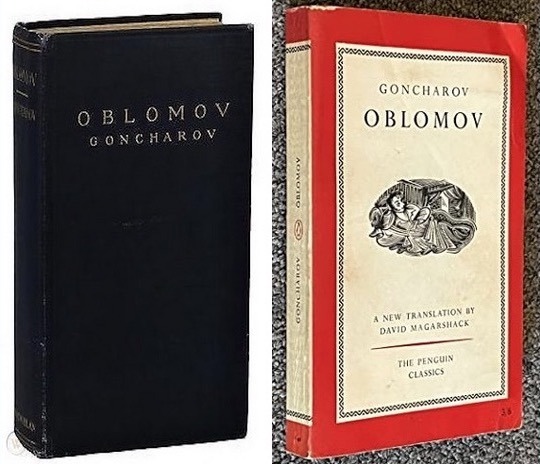
The author, Ilya Ilyich Oblomov, was a young nobleman who lived in the late 19th century in Moscow. Popular with the royal family and rich beyond all measure, he was targeted along with the royals by Lenin and the Bolsheviks when they took over Russia after the first world war (known then as World War Part I of II). To escape the fate of the royals (he is believed to have escaped the Winter Palace by only hours) he fled to Italy.
Italy was, at the time, a newly unified country of former city-states including Rome, Florence, Milan, and for some reason, Chicago, IL, the people of which may have thought “IL” stood for Italy at the time. Oblomov himself found protection in Vatican City (which was not a city, but a separate country) owing to his significant contributions to the Popesidential campaign of Pius XII. Once the revolution had died down in his former country, now part of the USSR, which is English for CCCP, which is Cyrillic for SSSR, which stood for USSR, Oblomov moved out into the “Country” (which was not a country, but just an Italian city) and began writing of his experiences.
Oblomov began his novel, Goncharov, in 1921. Its narrative was to be an epic escape from Russia to match his own, but this was not to be, as the house he moved into belonged to the family of Francesco Cuccia, known now as “Don Ciccio the All-Around Unpleasant” or “Cuccia the Pretty Damn Bloodthirsty.” Oblomov, having been tricked by certain vindictive members of the Vatican House of Commons, did not in fact have permission to live there.
As Oblomov himself tried to evade not only Don Ciccio’s mafia but Lenin’s assassins, Vatican intrigue, Templar knights trying to kill the Assassins, and of course, the order of assassins themselves, known then as “hidden ones” or simply, The Brotherhood; his novel Goncharov became a venting point for the tribulations to which he was subjected. Thus, Goncharov became the story of an epic battle between the Italian Mafia and Russians that we know today.
The novel Goncharov, published illegally in Soviet Russia as “Ivan Goncharov” or “The Many Sufferings Of Ivan Goncharov: Hope For The Best, Expect The Worst” was an underground hit. Stalin himself is said to have greatly enjoyed the novel before banning it, burning most copies of it, kidnapping its author and sending him to die in a gulag in Siberia. Though no record exists of Oblomov’s death, it does seem he was captured by Soviet secret police while visiting his parakeet in Yekaterinburg, and all record of him is lost upon his arrival in northern Siberia.
But a few copies made it out, and thanks to an English translation by Penguin Classics, the book fell into the hands of Martin Scorsese, who read the novel while in prep for his film Mean Streets, where he would go on to meet producer Domenico Procacci. Scorsese was of course too busy with his first New York epic to direct, but he agreed to co-produce the film. All that was missing was a director.
While filming the riot scene for Mean Streets though, Scorsese and his casting director happened to meet a certain extra with a peculiar name. Matteo JWHJ0715 (whose family name was changed at Ellis Island from “Jones”) had just moved to New York to achieve his dreams of Hollywood stardom, having thought Hollywood was one of New York’s suburbs. Scorsese corrected him and allayed his disappointment by inviting him to join him and Procacci for dinner.
The rest, as they say, is history.
3K notes
·
View notes
Text





i love oblomov ^^
the first pic is for my school project i gonna make a series of some kind of postcards with illustrations from russian literature
#oblomov#russian literature#ilya oblomov#olga ilyinskaya#andrey stoltz#agafya pshenitsina#oblomov x stoltz#rknchan art
31 notes
·
View notes
Text
I actually started reading Oblomov by Goncharov and I think it has a lot of meme potential.
It’s one of those books nobody reads at school because it’s too long and not much happens in it, but everyone’s supposed to, so it’s glossed over and analysed based on excerpts. I didn’t think much of it until I saw its Soviet adaptation and found it absolutely charming and very relatable.
The book is about Ilya Oblomov, a man who is just too chill to live in the high society. Too, too chill.
The book starts with him waking up at 8 am, meaning to do some paper work, 80 minutes into the audiobook it’s 12 am, he’s still in bed.
He’s not lazy, he is in fact extremely anxious and at the same time very laid back, so he just means to do stuff, but doesn’t. See, he calls his servant Zakhar who is old and done with everything, meaning to ask him to find the paperwork, but then starts arguing with Zakhar about everything being dirty and Zakhar replying that he’s not gonna clean up every day because it’ll still get dirty the next day (genius). Zakhar also says that neighbours live in a clean house because they are poor and they can’t possibly afford stale pieces of bread collecting in the corners of their house along winter (icon).
Then it’s suddenly 11 am and his friends start visiting asking him to go with them to a picnic party or whatever and he’s too busy thinking about how boring it must be to talk to people about god knows what. Or to work the entire day. Or to be social. Or to be a writer because a writer has to constantly feel.
Anyway, Ilya Oblomov might be the only real one and schoolkids simply can’t appreciate him.
23 notes
·
View notes
Text
One literary reference in "Goncharov" (1973) you may not notice
So remember the flashbacks describing how Goncharov had got the seed money for his "Naples business"? It mentiones his friend Ilya Ilyich, another Russian immigrant and ex-nobelman, whos money was Goncharov's main funding source "despite Ilya knowing close to zero about funding probably the largest organised crime group in Italy".

Well, this Ilya Ilyich is a huge reference to Oblomov - the main character of the same name novel by real Goncharov - famous Russian 19th century writer. Oblomov is a young, gentle and generous noble man who is incapable of making important decisions. Through the novel he spends most of his time in his bed, missing out on all opportunities for happiness the life gives him.
We can see the parallels between these characters: Ilya spends nearly all his money he had from his life in Russia, and he is easily fooled by more enterprising people like Goncharov. In final scenes of the movie it's mentioned that Ilya has sold his appartments and now lives in poverty.
I really like all the little details the movie adds to this character. We can deduce that Ilya's emotional state is, probably, a result of heavy depression, as he had to leave everything he loved behind and start a life from scratch in completely new surroundings. However, Ilya is not used to dealing with his problems on his own, so he leads his life in misery until disappearing from the story. We can see similar traits in Goncharov and other characters too.
TL;DR: Goncharov references the real Goncharov and does it brilliantly.
#martin scorsese#goncharov#goncharov 1973#goncharov analysis#literary#So I use my school literature knowledge to hop on this strange trend#Unreal#But you should real oblomov#it's depressing#Literature#classic literature
12 notes
·
View notes
Note
Not boring in the slightest I would love to hear more about your book collection!! What are some of your favourites from each genre? 🖤
Hello! First of all, that's so sweet of you to say, thanks a lot! 💜 Going from top to bottom, my favourites
— From the "Medieval"/gothic collection (that i haven't read that much of yet tbh):
· "Ivanhoe" by Sir Walter Scott. It's very witty at times + I got some nice vocabulary and cultural references from the medieval setting out of it.
· "The Castle of Otranto" by Horace Walpole. Liked it mostly for making me re-think the whole morale of the "Maleficent" films (they're the only thing I talk about ever, sorry for somehow bringing it even here). I mean the whole underlying idea that descendants should pay for their ancestors' wrongs if they themselves escaped punishment. Realising that for many medieval people that kind of retribution might've been considered just and right put lot of things in an interesting perspective for me!
· "Fair Margaret" by Sir Henry Rider Haggard. I'm reading it rn and enjoying the characters and the plot so far, although I sometimes wish the author wouldn't just tell what the characters are like since I can already tell it from their speech and actions, hah.
· I also have a book of Celtic myths which I also enjoy a lot despite never remembering a single plot or name.
— From foreign classics:
· "The Phantom of the Opera" by Gaston Leroux. It was the first book I really enjoyed after a long period of not being able to bring myself to read, so it's special to me + I really liked the Persian, it's insane that he's not in the musical??
· "Jane Eyre" by Charlotte Brontё. My #1 baby my favourite lady. I've read it a few times and every time I hate Mr Rochester more and love Jane more as well.
— From foreign modern/contemporary literature:
· "Flush" by Virginia Woolf. It's the only work of hers I've read so far, but I remember being in awe of just how colourful and almost tasty the descriptions are. And it's a very touching tale as well.
· "Martin Eden" by Jack London. *in keke palmer's voice* sorry to this man
· "Special Topics in Calamity Physics" by Marisha Pessl. A really well-done novel provided the author's intent was to make me absolutely fucking despise the main characters from the very first page. I think it was, so kudos to her.
— From Russian literature:
· "Oblomov" by Ivan Alexandrovich Goncharov. Somehow is in Russian school curriculum and still underrated. I guess people dislike the main character too much to enjoy it; not me, though! I only hate Ilya Oblomov because he reminds me of myself too fucking much and this whole novel is dragging me and putting me in existential dread!
· Mikhail Yuryevich Lermontov's poetry of which I have three books. I am a Lermontov girlie it's true it's true. I think he is quite underrated internationally (that is to say, I wish he was as well-known in the world as Tolstoy or Dostoyevskiy). He is romantism at its finest.
— From Circassian literature (that I also hardly read anything from because most of what I have is in Circassian and I'm not nearly as fluent):
· "The Millstones" by Isaac Mashbash. A historical novel about the time preceeding the Russo-Circassian war and the wartime itself. It was a difficult yet interesting read. I'm thinking of maybe re-reading it soon because it seems only fitting, considering what's happening right now has a lot of resemblance to what happens in the novel.
I think that's it! Sorry if it's too long! Again, thanks for asking!
5 notes
·
View notes